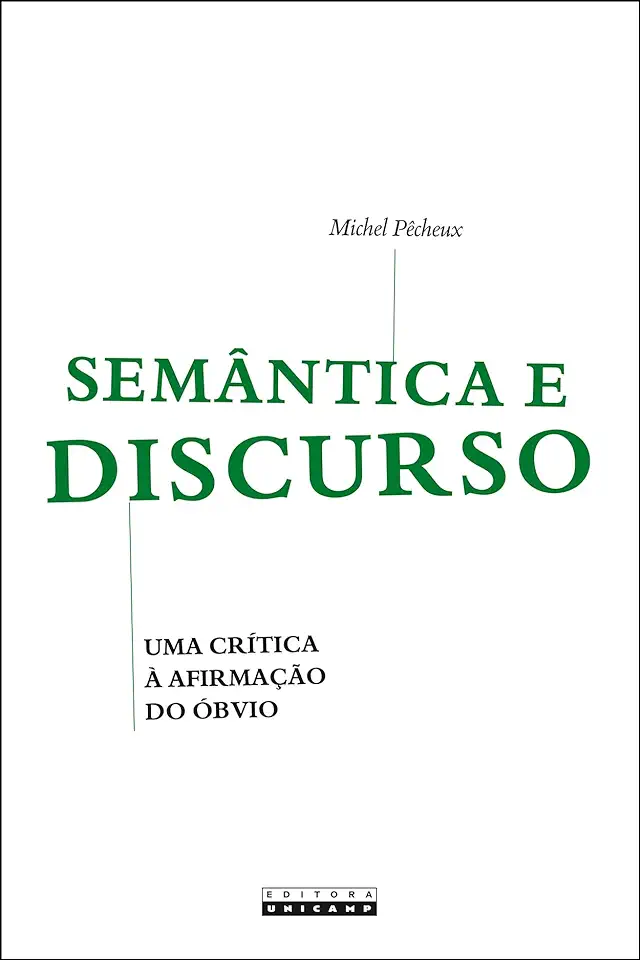
Semantics and Discourse: A Critique of the Assertion of the Obvious - Michel Pêcheux
Semantics and Discourse: A Critique of the Assertion of the Obvious - Michel Pêcheux
A Critique of the Assertion of the Obvious
In his seminal work, "Semantics and Discourse: A Critique of the Assertion of the Obvious," Michel Pêcheux offers a groundbreaking analysis of the relationship between language and ideology. Drawing on insights from linguistics, philosophy, and psychoanalysis, Pêcheux argues that language is not a neutral medium for the transmission of information, but rather a site of struggle and negotiation over meaning.
Pêcheux begins by critiquing the traditional view of language as a transparent medium that simply reflects the world as it is. He argues that language is not a mirror of reality, but rather a constitutive force that shapes our understanding of the world. The words we use to describe the world are not simply labels for pre-existing objects, but rather categories that we impose on the world in order to make sense of it.
For example, the way we talk about gender is not simply a reflection of the natural differences between men and women, but rather a way of constructing and maintaining gender inequality. The words we use to describe women and men are not neutral, but rather carry with them a whole host of assumptions about their roles and abilities.
Pêcheux also argues that language is not simply a tool for communication, but rather a form of social action. When we speak, we are not simply exchanging information, but rather we are performing actions that have real effects in the world. For example, when we make a promise, we are not simply stating a fact, but rather we are creating a social obligation.
Pêcheux's work has had a profound impact on the study of language and ideology. His insights have been used to analyze a wide range of social phenomena, from political discourse to advertising to everyday conversation. "Semantics and Discourse" is a must-read for anyone interested in understanding the relationship between language and power.
Key Concepts
- Discourse: A system of meaning-making that is shared by a group of people.
- Ideology: A system of beliefs and values that shapes our understanding of the world.
- Interdiscursivity: The way in which different discourses interact with each other.
- Materiality of discourse: The way in which discourse is embedded in the material world.
- Power: The ability to control the production and circulation of meaning.
Why You Should Read This Book
"Semantics and Discourse" is a challenging but rewarding read that will change the way you think about language and ideology. Pêcheux's insights are essential for understanding the world we live in and for challenging the status quo.
Here are a few reasons why you should read this book:
- To gain a deeper understanding of the relationship between language and ideology.
- To learn how language is used to construct and maintain social inequality.
- To develop the tools you need to analyze the discourse of power.
- To become a more critical consumer of media and advertising.
- To make a difference in the world.
Conclusion
"Semantics and Discourse" is a must-read for anyone interested in understanding the relationship between language and power. Pêcheux's insights are essential for understanding the world we live in and for challenging the status quo.